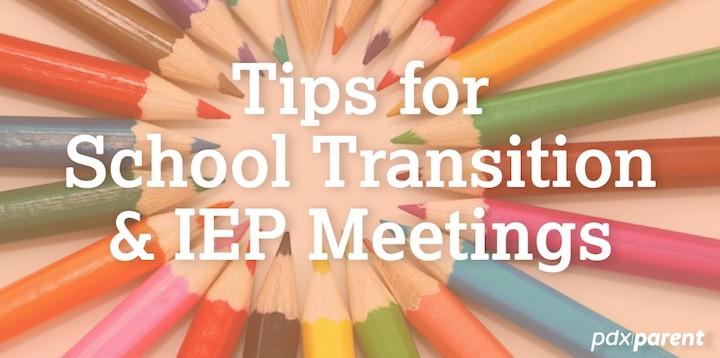
If you are a parent of a child experiencing specialized needs or disability, you may be particularly anxious about sending your child to elementary school. After all, you want to make sure that your incoming kindergartner gets the full benefit of a public school education, and has a positive experience in the process.
Prior to your child reaching kindergarten age, you probably had an Individual Family Service Plan (IFSP), a written document that included your child’s current developmental levels, desired outcomes for the child and family, and a plan for how to achieve those outcomes. The IFSP services only continue until your child starts Kindergarten, and the time of transition from the IFSP to other services can cause anxiety for parents and children alike.
Here is what to expect.
In the spring before your child is set to begin kindergarten in the upcoming fall, there should be a transition meeting. This meeting is really a hand-off from the IFSP providers to the school-age providers. Parents should attend the transition meeting, and be prepared to discuss their child’s educational needs. At the transition meeting, parents are told that the IFSP will expire before the child starts kindergarten, and a new document, an Individualized Education Program (IEP) will be developed instead.
An IEP is for students who will receive special education services, typically at the neighborhood school. The IEP outlines the child’s present level of educational and functional performance, then sets concrete goals to be measured and achieved via special education services, over the course of a calendar year. The IEP must be reviewed at least annually, and a child can have an IEP until they graduate from high school with a standard diploma or age-out of services after turning 21.
The biggest difference between an IFSP and an IEP is the noticeable removal of the word “family” in the IEP. When a child starts kindergarten, the focus shifts from the family and the child’s development, to the educational needs of the child while at school. Parents are often dismayed at the change of focus, and the lessened emphasis on the family. It can be a difficult change for parents whose ideas for their child and education suddenly have much less influence at the meeting table than during the IFSP process.
Yet the lessened emphasis on family does not mean that parents cannot be involved. With any transition, whether from pre-school age to elementary school, from elementary to middle school, from middle to high school, or even from high school to a district transition program, the importance of being prepared and involved cannot be overstated. A transition meeting should be held any time a child will transition from one school level to the next.
Here are some tips for how you can be involved during these important transition meetings.
- Start preparing for a transition meeting by making sure it is getting scheduled the spring before your child’s transition.
- Before any transition meeting, make sure the right people are invited and are actually attending. For example, for a preschooler, make certain that the IFSP “Service Coordinator” and someone from the elementary school, usually a case manager, will each be attending.
- Review your child’s IFSP carefully to have a full understanding of the services your child currently receives. This is the meeting at which the IFSP and developmental progress will be reviewed, and then an IEP written. The IEP will be in effect the day your child starts kindergarten.
- In advance of the meeting, ask for a draft IEP and copies of any evaluations or observations of your child so you can review them and be prepared with questions or concerns.
- At the meeting, ask questions about anything you do not understand or that does not make sense, whether on the IEP or a discussion occurring during the meeting. Keep asking questions until you are satisfied. Don’t fall into the trap of, “We don’t do that at elementary school,” or “middle school,’ or “high school.” If your child has a need that results from a disability and impacts their education, that need must be addressed on the IEP.
- Most practical piece of advice? Take your best smile, patience, and yes, water and fruit, or another edible treat, to any transition meeting. Except for the parents of each particular child, all of the attendees at any transition meeting will attend many transition meetings each spring. After the first 10 or 20, they are tired, and all of the kids’ individual information can run together in their minds, despite best efforts. It is always more successful to attend a meeting where people are polite, patient, well-hydrated, and can focus on the immediate task at hand – your child’s educational needs and success!
- Tips for School Transition & IEP Meetings - August 13, 2018



